Local News
Accolades for internationally-renowned medical researchers
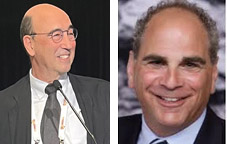
By MYRON LOVE Internationally known heart researcher Dr. Lorrie Kirshenbaum has a new accolade to add to his resume in recognition of his ground-breaking research over the past 30 years and more.
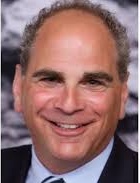
Most recently, Kirshenbaum – the long time Director of the St. Boniface Hospital’s Institute of Cardiovascular Sciences and Professor in the University of Manitoba’s Department of Physiology and Pathophysiology and Pharmacology and Therapeutics – was awarded an Honorary Doctorate in Science degree from the University of Kragujevac in Serbia. Previously, he had bestowed upon him the Heart and Stroke Foundation of Manitoba R.E. Beamish Memorial Award (in 2014), the University of Manitoba’s Distinguished Alumni Professional Achievement Award (2018,) and the Canadian Cardiovascular Society, Research Achievement Award in 2020. Last year, he was inducted into the Order of Manitoba.
He has also been recognized by several international heart research organizations in recent years.
On the late afternoon of Friday, May 3, colleagues, family and friends gathered in the atrium of the Albrechtsen Research Centre at the St. Boniface Hospital complex to celebrate Kirshenbaum’s newest honour.
Several colleagues stepped up to the podium to praise the honoree, among them Dr. Arnold Naimark, Past President of the University of Manitoba. Naimark began his remarks by quoting Winston Churchill’s adage that “no burden is heavier than great potential.”
“I remember Lorrie as a young scientist at the University of Manitoba,’ Naimark commented. “He was always asking questions.
“Not only is he a dedicated researcher, but also he contributes to the scientific community. Many of his students have become leaders in their own right.”
Among others praising Kirshenbaum were: Dr. Ian Dixon, head of the department of physiology and pathophysiology; the Honourable Dr. Rene Cable, Minister of Advanced Education – representing the provincial government; Dr. Jude Uzonna, Vice Dean of Research, Rady Faculty of Health Sciences, University of Manitoba; and Dr. Bram Ramjiawan, Director of Research, Asper Clinical Research Institute, speaking on behalf of Dr. Michael Czubryt, Executive Director of Research. Albrechtsen Research Centre.
“You do what you do, not in the hope of recognition, but because you want to make a difference,” Kirshenbaum noted when it was his turn at the podium. I love doing research and I love teaching.”
He expressed his gratitude to his wife, Dr. Diane Popeski, and his family, as well as the members of his research team. “I have a group of superb researchers who have been with me for a long time. They have done all the heavy lifting.”
He also spoke of the many students that he has taught over the past 30 years. “I am inspired by younger people,” Kirhenbaum said.
He completed his remarks by referring to those who came before him – mentors in cardiology such as Dr. Naranjan Dhalla, founding director of the Institute of Cardiovascular Sciences at the St. Boniface Hospital, and the late Dr. Robert Beamish, the founding director of the Manitoba Heart Foundation.
“I stand on the shoulders of giants,” Kirshenbaum said.
A graduate of the University of Manitoba – with a Ph.D. in Physiology – the son of Mildred and the late Alec Kirshenbaum says that he knew from a very young age that he wanted to devote his life to science and research.
Over the past few years, he and his team of four researchers and 20 workers have been focusing on three specific areas of research into heart health and heart disease. One of those focuses has been a study of the relationship between certain chemotherapy drugs and heart failure. A second area of interest for Kirshenbaum and his researchers has been the effect of night work on the heart and general health of shift workers.
His most recent efforts have been focused on developing a women’s heart research program at the St. Boniface Hospital. Kirshenbaum pointed out in an earlier interview that women suffering from heart disease exhibit different symptoms than men. As a result, heart disease is often undiagnosed in women and undertreated.
“As part of this program, we are trying to recruit a specialist in this area for the St. Boniface Hospital and encourage students at our medical school to consider specializing in this field of medicine,” he noted. “We are striving to develop this dedicated women’s heart health research program with a goal of reducing heart disease and improving quality of life.”
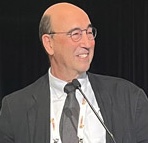
Top liver specialist Dr. Gerald Minuk awarded gold medal by Canadian Association for the Study of the Liver
Dr. Gerald (Yossl) Minuk, Canada’s first liver specialist, and founder of the section of hepatology in the Department of Internal Medicine at the Health Sciences Centre was awarded the Gold Medal by the Canadian Association for the Study of the Liver (CASL) – which he co-founded 22 years ago – at its annual meeting, which was held in Toronto on March 1.
Minuk says that he was overwhelmed by the honour. “I am in very impressive company,” he notes. “Four of the previous Gold Medal recipients were also Nobel Prize winners.”
The son of the late Max and Edith Minuk has had a long and colourful career – a career that has taken him all over the world. Early on, he did locums in Churchill and in St. John’s, Newfoundland. He studied hepatology at the National Institutes of Health in Bethesda, Maryland. In July, 1982, Canada’s first liver specialist was recruited by Foothills Hospital in Calgary. He returned to Winnipeg in 1987 to found the hepatology section here.
I have written previous stories about Yossl describing a two-week stay teaching in China about 35 years ago – and a later invitation to share his expertise in the oil-rich Arab Kingdom of Qatar where the authorities want ed to hire him despite his being an openly Orthodox Jew.
His 42-year career has encompassed clinical research, ministering to patients, publishing more than 300 research papers, and teaching. He notes that, over the years, he has taught up to 200 students – many of whom have gone forward to start their own liver programs across Canada.
Although Minuk retired two years ago, he continues to work on what was his final research project – a $2.1 million, five-year study to try to determine why Indigenous Canadians suffer from liver disease at a much higher rate than the overall Canadian population.
Anyone who knows Yossl also knows that his principal passion beyond his career has been the House of Ashkenazie, the last of the old North End shuls. He has been a mainstay of the old shul for decades – often recruiting medical colleagues and students to join him at shul for morning minyans. In recent times, morning minyans at the Ashkenazie have declined to Thursday mornings only – but Yossl Minuk hopes to keep the old building going by turning it into a museum – for which he is still seeking funding.
In the meantime, he continues to attend twice daily minyans at the Lubavitch Centre.
Local News
Local foodie finds fame by trying foods on Facebook Marketplace

By BERNIE BELLAN Disclaimer: The subject of this story is my daughter, but don’t hold that against me.
Shira Bellan is an intrepid adventurer when it comes to trying out new foods. A while ago, as she explained in an interview conducted with her by CJOB’s Hal Anderson on January 28, Shira was just laying on her couch scrolling through Facebook Marketplace when she came up with the idea of trying different foods and posting her reactions to them – first on Facebook, then when she developed a following – on Instagram, followed by a YouTube channel and, at my suggestion, on TikTok. She now has tens of thousands of followers all over the world, with her audience growing every day.
Following are excerpts from the interview:
Anderson: How did you come up with this idea?
Bellan: Honestly, I was just, uh, laying on my couch browsing Marketplace like I often do, and I kept seeing food pop up and I just thought it would be hilarious to start buying food and then reviewing it because I thought there were some very interesting food items on there. And I was pretty surprised that people were trying to sell them on Marketplace. And it just made me laugh. And so I thought, “Let’s do this.”
Anderson What have you found out?
Bellan: Yeah, I kind of think that it’s a bunch of family members that say to each other, “This is so good. You should sell this.” And it’s not easy to get your food into a restaurant or into a bakery. And Facebook Marketplace is thriving and it’s super easy to use for anyone of all ages, and I think Facebook is just super well known.
So I think people started putting super simple food items up there and I really think my page has made it explode a lot bigger as of lately. But I think there’s always been food on there. I just don’t think it was as big until very recently.
I’ve always seen people selling food, and I’ve gone, “Well, I wouldn’t want to try that, that doesn’t look very good, or man, that looks great. I would love to try that.”
And I think in many cases it’s food tied to an ethnicity of one kind or another that maybe we wouldn’t normally get to try in a restaurant in Winnipeg.
Anderson: Right. So good for you for doing this because you’re sort of, without me having to do it, you’re saying, “Yeah, this is worth it, or, or this one isn’t.”
Bellan: That’s exactly what I’m doing. And it’s been interesting. I’m loving chatting with the different people, the different languages, and just exploring all the foods and, and there’re some foods that I’m trying that people from that specific ethnicity are saying, “Oh God, do not eat that.”
I’ve had some good ones, I’ve had some bad ones. And for the most part though, it’s really good. I think it’s just cool to learn about other people’s heritage and what they eat and like.
Anderson: So you said – in the clip I just played (referencing a clip he played before Shira came on the air) I love that one – the butter chicken. But if you had stuff that you bought that you went, “Oh man, this is a miss.” What would you say?
Bellan: I’m quite nervous to post some of the ones I don’t like because I’m called racist multiple times a week. And I’ve tried to make it clear that when I don’t like something, it has absolutely zero to do with the culture, ethnicity, or country that the food’s from, it has everything to do with how the food tastes.
And I need to remind people that these are home chefs. I don’t know how they made the recipe. I don’t know that they followed a recipe. I don’t know that they didn’t put dog food in it. So, if I don’t like something, it doesn’t mean that it’s bad. It means that I personally did not like it.
I try to be very open-minded to foods. I don’t eat meat. I’ll occasionally eat chicken – so that kind of eliminates a lot of the foods that I’m able to buy on there. But I am very interested in all the different ethnicities and their foods. Some of ’em are very scary ’cause they’re not foods I would eat every day, but it would be very boring if I was just buying chicken fingers and fries off marketplace.
Anderson: Well, that’s how I feel sometimes, right? I mean, even, you know, even with these delivery apps now, if we decide, well, we’re gonna order in, we’ll spend sometimes way too long deciding what we’re gonna have. Because it feels like even though we have all these incredible choices, it feels like it’s the same, four or five things and we don’t feel like it.
So I I like what you’ve done. Listen, on people being critical when you say you don’t like a certain food. You’re gonna have those people – trust me, being in the business I’m in, you’re gonna have people that are gonna make that connection. And just based on what I’ve seen of your stuff I don’t get a hint at all that it’s about the people you bought it from or their ethnicity.
It’s just you aren’t a fan of that particular food. And they may have made it perfectly, but you’re just not into that food.
Bellan: Exactly, and I’ve tried some North American foods that just tasted disgusting, too. And again, it’s home chefs and as for myself – I am the worst cook on the planet.
If I put something on Marketplace and someone ate it, they wouldn’t be ridiculing me. They’d be ridiculing my horrible cooking skills. What’s more fun for me is trying these foods that I consider strange. I had a really interesting one today. It was like a slippery, slimy, gooey shrimp. I couldn’t do it.
Someone might like it, but nope. Wasn’t for me.
Anderson: Yeah, and you’ve had some really cool ones, like a fairly recent post is the marshmallow flowers. I mean, incredible, incredible.
Bellan: They tasted unbelievable too. They did not taste like a store-bought, packaged marshmallow. They had a very unique flavour and texture.
They tasted amazing. I would eat them every day and the girl who makes them puts so much time and love into them. She told me that it takes about two days to make with all the processing and all the different steps it takes, and they were so beautiful. I didn’t want to eat them, but of course I did.
Anderson: Here’s the other thing too, about what you’re doing it, and you tell me, you probably didn’t realize this when you started doing it, but in some cases where you do this and you got a lot of followers, you’re getting a lot of views.
And when you say, “man, this is really good.” That person then gets maybe more orders than they can handle, but many of them are really happy about that. You had them call you up in tears after the fact and say, you know, “I was selling these dishes to make a couple of bucks ’cause my, my family is struggling” and now they’ve got more orders than they know what to do with.
And, you have really helped them make ends meet.
If you would like to see any of Shira’s food review videos you can look for them on Instagram by entering winnipegmarketplacefoodfinds or on YouTube enter @shira_time
Local News
The Simkin Centre received over $500,000 in charitable contributions in 2025 – so why is its CEO complaining that “it cannot make the same number of bricks with less straw?”
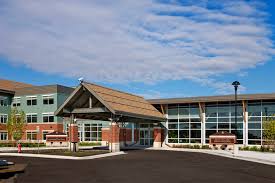
By BERNIE BELLAN (This story was originally posted on January 14) I’ve been writing about the Simkin Centre’s aacumulated deficit situation ($779,000 according to its most recent financial report) for some time.
On January 14 I published an article on this website, in which I tried to find out why a personal care home that has an endowment fund valued at over $11 million is running such a huge deficit.
Following is that article, followed by a lengthy email exchange I had with Don Aronovitch, who is a longtime director of the Saul and Claribel Simkin Centre Foundation. My purpose in writing the original article, along with the update, is I’m attempting to ascertain why the Simkin Centre simply doesn’t use more of the charitable donations it receives each year to address its financial situation rather than investing then under the management of the Jewish Foundation:
Here is the article first posted on January 14: A while back I published an article about the deficit situation at the Simkin Centre. (You can read it at “Simkin Centre deficit situation.“) I was prompted to write that particular article after reading a piece written by Free Press Faith writer John Longhurst in the August 5 issue of the Free Press about the dire situation personal care homes in Winnipeg are in when it comes to trying to provide their residents with decent food.
Yet, Longhurst made one very serious mistake in his article when he wrote that the “provincial government, through the Winnipeg Regional Health Authority, has not increased the amount of funding it provides for care-home residents in Manitoba since 2009.”
In fact, the WRHA has given annual increases to personal care homes, but its allocations are not broken down by categories, such as food or salaries. As a spokesperson for the WRHA explained to me in an email: “PCHs receive per diem global operating funding based on the number of licensed beds they operate. This funding model is designed to support the full range of operating costs associated with resident care, including staffing, food services, utilities, building operations, and other day-to-day expenses.”
Now, one can make a perfectly valid argument that the level of funding from the WRHA has not kept up with inflation, especially inflation in food costs, but the Simkin Centre is in an even more precarious position because of the skyrocketing cost of kosher food.
“In recent years,” according to an article on the internet, “the cost of kosher food has increased significantly, often outpacing general food inflation due to unique supply chain pressures and specialized production requirements.”
Yet, when I asked Laurie Cerqueti how much maintaining a kosher facility has cost the Simkin Centre, as I noted in my previous article about the deficit situation at Simkin, she responded: “approximately $300,000 of our deficit was due to food services. I do not have a specific number as far as how much of the deficit is a result of kosher food…So really this is not a kosher food issue as much is it is an inflation and funding issue.”
One reader, however, after having read my article about the deficit situation at Simkin, had this to say: “In John Longhurst’s article on Aug 5, 2025 in the Free Press, Laurie (Cerqueti) was quoted as saying that the annual kosher meal costs at Simkin were $6070 per resident. At Bethania nursing home in 2023, the non-kosher meal costs in 2023 were quoted as $4056 per resident per year. Even allowing for a 15% increase for inflation over 2 years, the non-kosher food costs there would be $4664.40 or 24% lower than Simkin’s annual current kosher food costs. If Simkin served non-kosher food to 150 of its 200 residents and kosher food to half of its Jewish residents who wish to keep kosher, by my calculation it would save approximately $200,000/year. If all of Simkin’s Jewish residents wished to keep kosher, the annual savings would be slightly less at $141,000.”
But – let’s be honest: Even though many Jewish nursing homes in the US have adopted exactly that model of food service – where kosher food is available to those residents who would want it, otherwise the food served would be nonkosher, it appears that keeping Simkin kosher – even though 45% of its residents aren’t even Jewish – is a “sacred cow” (pun intended.)
So, if Simkin must remain kosher – even though maintaining it as a kosher facility is only adding to its accumulated deficit situation – which currently stands at $779,426 as of March 31, 2025,I wondered whether there were some other ways Simkin could address its deficit while still remaining kosher.
In response to my asking her how Simkin proposes to deal with its deficit situation, Laurie Cerqueti wrote: “There are other homes in worse financial position than us. There are 2 homes I am aware of that are in the process of handing over the keys to the WRHA as they are no longer financially sustainable.”
I wondered though, whether the Simkin Centre Foundation, which is managed by the Jewish Foundation of Manitoba might not be able to help the Simkin Centre reduce its deficit. According to the Jewish Foundation’s 2024 annual report, The Saul and Claribel Simkin Centre Foundation, which is managed by the Jewish Foundation, had a total value of $11,017,635.
The Jewish Foundation did distribute $565,078 to the Simkin Centre in 2024, but even so, I wondered whether it might be able to distribute more.
According to John Diamond, CEO of the Jewish Foundation, however, the bylaws of the Foundation dictate that no more than 5% of the value of a particular fund be distributed in any one year. There is one distinguishing characteristic about the Saul and Claribel Simkin Centre Foundation, in that a portion of their fund is “encroachable.” The encroachable capital is not owned by JFM. It is held in trust by JFM but is beneficially owned by Simkin, similar to a “bank deposit”. While held by the JFM, these funds are included in the calculation of Simkin’s annual distribution.
I asked John Diamond whether any consideration had been given to increasing the distribution that the Jewish Foundation could make to the Simkin Centre above the 5% limit that would normally apply to a particular fund under the Foundation’s management.
Here is what John wrote in response: “The Simkin does have an encroachable fund. That means that at their request, they can encroach on the capital of that fund only (with restrictions). This encroachment is not an increased distribution; rather, it represents a return of capital that also negatively affects the endowment’s future distributions.
”It is strongly recommended that encroachable funds not be used for operating expenses. If you encroach and spend the capital, the organization will receive fewer distribution dollars in the next year and every year as the capital base erodes. Therefore, the intent of encroachable funds is for capital projects, not recurring expenses.”
I asked Laurie Cerqueti whether there might be some consideration given to asking for an “encroachment” into the capital within the Saul and Claribel Simkin Centre Foundation?
She responded: “We are not in a position where we are needing to dip into the encroachable part of our endowment fund. Both of our Boards (the Simkin Centre board and the Saul and Claribel Simkin Centre Foundation board) are aware of our financial situation and we are all working together to move forward in a sustainable way.”
At the same time though, I wondered where donations to the Simkin Centre end up? Do they all end up in the Simkin Centre Foundation, for instance, I asked Laurie Cerqueti on December 15.
Her response back then was: “All donations go through our Foundation.”
I was somewhat surprised to read that answer, so I asked a follow-up question for clarification: “Do all donations made to the Simkin Centre end up in the Simkin Centre Foundation at the Jewish Foundation?”
The response this time was: “No they do not.”
So, I asked: “So, how do you decide which donations end up at the Foundation? Is there a formula?”
Laurie’s response was: “We have a mechanism in place for this and it is an internal matter.”
Finally, I asked how then, the Simkin Centre was financing its accumulated deficit? Was it through a “line of credit with a bank?” I wondered.
To date, I have yet to receive a response to that question. I admit that I am puzzled that a personal care home which has a sizeable foundation supporting it would not want to dip into the capital of that foundation when it is facing a financial predicament. Yes, I can see wanting the value of the foundation to grow – but that’s for the future. I don’t know whether I’d call a $779,425 deficit a crisis; that’s for others to determine, but it seems pretty serious to me.
One area that I didn’t even touch upon in this article, though – and it’s something I’ve written about time and time again, is the quality of the food at the Simkin Centre.
To end this, I’ll refer to a quote Laurie Cerqueti gave to John Longhurst when he wrote his article about the problems personal care homes in Winnipeg are facing: “When it comes to her food budget, ‘we can’t keep making the same number of bricks with less straw.’ “
(Updated January 24): Since posting my original story January 14 I have been engaging in an email correspondence with Don Aronovitch, who is a longtime director of the Saul and Claribel Simkin Centre Foundation.
On Jan. 19 I received this email from Don:
Hi Bernie,
Your burning question seems to be “Do all donations to the Simkin Centre end up going to the SC Foundation.”
In our attempts to explain the subtle workings of the Simkin Centre PCH, the Simkin Centre Foundation & the role of the Jewish Foundation of Manitoba, we somehow have failed to answer your question. I trust that the following will do the job.
All donations to the Simkin Centre (PCH & Foundation) go to the SC Foundation as a ‘custodian’ for the PCH.
Then, at the direction of the PCH, the monies, in part or in whole, are transferred to the PCH either immediately or subsequently. Further, again at the PCH’s direction, a portion may be transferred to the Foundation’s Encroachable Building Reserve Fund at the JFM.
Regards,
Don Aronovitch
I responded to Don:
But how are the monies that are transferred to the PCH treated on the financial statement?
Is everything simply rolled in as part of “Contributions from the Saul and Claribel Simkin Centre Foundation?”
On Jan. 22 Don responded:
Bernie,
I said previously and I repeat that the Simkin Centre has many sharp minds and therefore, it is eminently able to effect asset management strategies appropriate to the Simkin Centre’s ‘Big Picture’ which they understand fully. Having said that, please note that:
Other than the Simkin Stroll which brings in about $100k and goes directly into the Home’s operations to support the program being promoted, the annual contributions to the Simkin Centre are relatively nominal.
The suggestion that there may be a sub rosa plan to ‘starve‘ the PCH by stashing money in the Building Reserve Fund at the JFM is absurd, totally absurd!!
Don
I responded to Don:
Don,
According to the Simkin Centre Foundation’s filing with the CRA it received $205,797 in charitable donations in 2025 plus another $387,000 from other registered charities.
Would you describe those contributions as “relatively nominal?”
But – there is no way of knowing what portion of those donations was given back to the Simkin Centre for immediate use and what portion was invested by the Jewish Foundation.
Can you tell me why not? (Laurie says that is an “internal matter.” Why?)
By the way, I never wrote there was any plan to stash “money in the Building Reserve Fund at the JFM.”
I was simply asking what is the point of building up an endowment for future use when the Simkin Centre’s needs are immediate, viz., its accumulated deficit of $779,000.
Also, have you or any other members of the board had meals for a full week at the Simkin Centre? I have spoken to many residents during my time volunteering there who told me they find the quality of the food to be very poor.
Why I’m so persistent on this point Don is that Laurie Cerqueti has been making the case – quite often – that the amount of funding the Simkin Centre receives from the WRHA is far from adequate.
But, if it’s actually the case that the Simkin Centre receives a substantial amount in charitable donations each year, but chooses to invest a good chunk of those donations rather than spend them, then it’s hardly a valid criticism to make of the WRHA that it’s funding is inadequate.
Why is it so gosh darn difficult to come up with the amount Simkin has been receiving in charitable donations?
Could it be that it’s because a lot of people would be dismayed to learn the reason is that money is being invested rather than being spent?
-Bernie
Don responded:
Bernie,
I add the following to this, my last contribution to the thread below.
First, let’s stick with individual donors as those were the references you started with. Starting with the 2025 figure of $206,000 total, deduct $105,000 (from the Simkin Stroll) and also deduct the healthy 5 figure donation (from a longtime Simkin supporter). We then have approximately $60,000 from 20/30 individuals and YES, it is what I would call “relatively nominal”.
As an fyi, I am in Palm Springs and in the past several days, I have asked 4 individuals what would be their spending expectations of a charity to which they donated $25,000. The responses were almost identical and they can be summarized as “We only support organizations where we value their mission and trust their management. In trusting their management, we believe that they know best if our money should be used for current operations, for future operations or for both.“
Don
Does it make sense to say, as Don does, that when considering the amount of charitable dollars the Simkin Centre receives, one ought to deduct the proceeds from the Simkin Stroll and a “healthy 5 figure donation?” I don’t see the logic in that.
And, I’m still wondering: How much of the more than $500,000 in charitable donations the Simkin Centre received in 2025 came back to the Simkin Centre to fund its immediate needs and how much was invested?
Local News
New community security director well-suited for the challenge
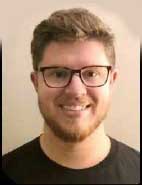
By MYRON LOVE Despite his still-young age, William Sagel, our community’s newly appointed director of security, brings a wealth of experience to his new role.
“I have always been drawn to protecting others,” observes the personable Sagel. “It may reflect the difficult time growing up, being bullied throughout elementary school. I was small for my age, and I usually found myself breaking up fights.”
His early years, he recounts, were spent growing up in Nice, on the famed Riviera, where his father worked in construction management. At the age of 10, the family moved back to Montreal.
Back in Montreal, Sagel continued his studies, graduating from high school and CEGEP, then enlisting in the armed forces.
Following his army service, he began his career with the Dutch Diplomatic Security Service. While working abroad, a banking executive encouraged him to return to school and earn a university degree.
“I chose to come back to Montreal,” he says. “That is where my family is.”
Armed with a degree in political science, he embarked on a career in security consulting.
In 2023, after years of working in Canada, William began training security forces in Mali. “I was responsible for the training department. We had around 400 security personnel, providing them the tools and skills to be more effective at what they do,” he explains.
Sagel arrived in Winnipeg on December 1 to assume his new position.
“The major focus in our security program is to build resilience and empower the community,” he explains. “Developing a plan to be able to respond properly to future crises. We establish a baseline, where you are now and where you hope to be in five years’ time.”
He notes that our Jewish community can learn from the national network and security networks already established in Montreal and Toronto to provide security and peace of mind for community members.
“I plan to work on raising security standards,” he says. “With the rise in antisemitic incidents over the years and after October 7, we need to do more to mitigate threats. We must raise awareness through education and empower community members through training.”
He speaks about encouraging more people to contribute their time to strengthening our community in any way they can, especially through volunteering. He encourages anyone who is willing to participate to reach out to him directly.
“Over the next few months,” he reports, “I will be working with institutions to put programs in place that will build resilience. The goal is to provide long-term security not only for ourselves but also for future generations.”
When asked about the hostile environment for Jewish students on university campuses, he says that he has had positive discussions with both the Winnipeg Police Service and the University of Manitoba’s director of security, who are committed to providing a more conducive learning environment for students.
As to his impressions of his new Jewish community, he has only positive things to say. “I came here alone, but everyone has been super friendly and welcoming,” he comments. “A lot of people have reached out to me. I have had a lot of dinner invitations, but unfortunately have been very busy trying to get organized and settled.”
“I am looking forward to the next few months of exploring Manitoba, its parks and museums, and seeing what the city has to offer.”


